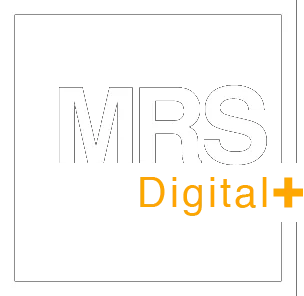We’re all looking for that magic adjustment to take our PPC accounts to the next level. Sadly, there is no one-size-fits all formula. But one tactic gets more industry coverage than any other, and that is using SKAGs.
What are SKAGs?

SKAGs is an acronym that stands for Single Keyword Ad Groups. SKAGs refer to a campaign structure where every keyword in your account is separated out into its own ad group.
The basic premise of SKAGs is that by structuring your account in this way you can ensure the ads you serve are closely married to the users’ search term.
Using SKAGs improves the Quality Score of your ads. Quality Score has an enormous influence over the cost and effectiveness of your paid search campaigns. Just as your credit score can affect whether or not you qualify for a loan and how high your interest rate is, Google Quality Score affects how your PPC ads perform and your cost per click.
Examples of SKAGs
SKAG with multiple match types
Ad group:
Cactus plant pot
Keywords in ad group:
+cactus +plant +pot
“cactus plant pot”
[cactus plant pot]
In this example, each match type variation has been included in the ad group. By using this method, you’re able to stack your bidding according to your most successful match type. Depending on your search volume, you could even go as far as separating out your SKAGs by match type.
This method can be highly effective for mining high volume keywords and pulling winning search terms into granularly targeted Exact Match Groups.
SKAGs should still be a self-feeding machine. To make sure your account’s focus doesn’t stay stuck in stasis, comb through your search terms report. Find where you can break ad groups down further to improve relevancy and Click Through Rate.
Will using SKAGs benefit you?
That depends. Do you want to make more money?
If so… YES!
SKAGs will benefit you whether you’re an in-house marketer, PPC executive at a digital marketing agency or if you use an agency. This is for one simple reason: Using SKAGs makes you more money by reducing CPC and boosting conversion.
Reducing cost per conversion boosts your profit, which you can pocket or reinvest in your campaign. Increasing conversion volume increases leads, which puts even more money into your business.
What Are the Benefits of Using SKAGs?
So why do all this manual work? Simply put, Quality Score. Making gains in quality will hugely increase the profitability of your advertising. Improvements in quality score can yield up to 50% savings on your cost-per-click (CPC).
To make this easy we have listed below the 6 key gains to be made from SKAGs:
Core Benefits of SKAGS:
SKAGs separated by match type
Ad group:
Cactus plant pot (BM)
Keywords in ad group:
+cactus +plant +pot
Ad group:
Cactus plant pot (E)
Keywords in ad group:
[cactus plant pot]
- Clear Account Structure to Follow
Using SKAGs builds an account structure that is clear and logical for account managers. SKAGs can reduce the likelihood of human error as there is no need for an individual to try and interpret what ad group a keyword should go in given it will have its own dedicated SKAG. This makes the method easy to teach and understand as its pre-existing structure steers away the need to compile related keywords.
- Improved CTR
Improving the relevance of ads for the searcher inevitably raises the chance they’ll click on your ad. By closely marrying your keyword to your ad text you are going to improve relevance across your account and reduce the number of discrepancies you find between your search term report and your keywords.
- Improved Quality Score & Reduced CPCs
As an account manager, providing return on investment and improving Quality Score (QS) should your primary concerns. The two are often directly linked so managing your account with these in mind will make all the difference.
SKAGs often produce a spike in Click Through Rate and consequently QS given that Click Through Rate makes up roughly 70% of QS.
Google uses the QS metric to indicate whether users find your advertising appealing/useful. To incentivise advertiser to make sure their advertising is optimised, Google provides discounts on cost-per-click for advertisers with high QS. In contrast to this advertisers with low CPC might receive penalties/ additional charges on their CPCs.
- Improved Conversion Volumes
By this point I’m sure you get the hang of it. With the combination of additional impressions, clicks and reduced costs you can also expect to improve the total number of conversions you will generate through your advertising. Drinks all round!
- Less Wasted Spend & Improved Control
Not only will you see savings through Quality Score but you can also make savings simply through granular management. By structure your account with SKAGs you are forced to manage your account down to keyword level as opposed to analysing your account in broad strokes.
In turn this can lead to you to small optimisations that might not necessarily be apparent in a nosier, less regimented structure.
Given that Google recommends 10-20 keywords per ad group you will also have far greater control on mapping a user’s search to a corresponding ad.
By implementing SKAGs you should see a reduction in Cost Per Acquisition and an increase in conversion volume with consistent levels of spend. Simply put:
Lower cost per conversion = Better profit margins
Improved conversion volume = Increased Revenue
Disadvantages of using SKAGs
Whist SKAGs can dramatically improve CTR and ad relevancy they have one fundamental flaw. They are time consuming. Separating out every keyword into its own ad group with its own ads can be a real labour of love. Although there are workarounds to this thanks to tools like AdWords editor. Ultimately it’s going to take more time than it generally might if you were to use slightly broader ad groups.
You must be careful not to dilute your data too much because you will be doubling the number of ads you’re using. This makes data saturation harder to reach.
As with most things PPC, whether SKAGs are appropriate comes down to the individual account. For example, if you have a long tail keyword with low search volume, such as “accountancy service providers in Europe”, creating a SKAG is a poor use of time. Although you could just select a broader variant of the keyword and create a SKAG around that instead.
Are you ready to implement SKAGs?
So that’s a rundown of how to structure your PPC campaigns. But what’s next? What’s the best strategy to employ? Google Adwords offers a range of flexible bidding strategies that uses machine learning to make your PPC management easier.
Using SKAGs is a question of time investment vs. return, which you will have to judge on your account’s own merits. But if you need further guidance, speak to one of our PPC experts today and see how we can help you make more money and more conversions.




![How To Optimise Your Ads With Single Keyword Ad Groups [Guide]](https://mrs.digital/wp-content/picasso/2026/02/how-to-optimise-for-ai-seo-geo-and-aeo.webp)

![How To Optimise Your Ads With Single Keyword Ad Groups [Guide]](https://mrs.digital/wp-content/picasso/2025/06/S_DD_Logo_ReversedRGB_.webp)